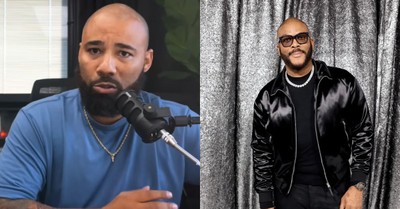Three Facts Explain John McCain’s Popularity

Today is John Sidney McCain III’s birthday. The war hero, longtime senator, and presidential candidate would have been eighty-two years old.
His body is lying in state in the Arizona state capitol today. A private service will be held at 10 a.m., then the public can pay their respects beginning at 2 p.m. local time.
Tomorrow, a memorial service will be held at North Phoenix Baptist Church, his home congregation. The event will be livestreamed on McCain’s website.
Friday, McCain’s body will lie in state inside the US Capitol Rotunda. Only thirty other people in US history have been so honored. His Senate colleagues and staff will honor him in an 11:00 a.m. ceremony, then members of the public will pay their respects from 2 p.m. to 8 p.m.
On Saturday, a televised funeral service will begin at 10 a.m. in the Washington National Cathedral. At McCain’s request, former presidents George W. Bush and Barack Obama will deliver eulogies. On Sunday, McCain’s family will hold a private service at the US Naval Academy before laying his body to rest at the academy’s cemetery.
What explains John McCain’s abiding popularity across our land?
One: He put principles before politics
Senate Majority Leader Mitch McConnell called McCain “a great American patriot, a statesman who put his country first and enriched this institution through many years of service.” Such praise from a leader of his own political party is unsurprising.
But Chuck Schumer, a Democrat who serves as Senate Minority Leader, also honored McCain: “John’s dedication to the country and to the men and women who served it was unwavering. His life is a story of American heroism personified.” Other Democrats, from Barack Obama and Joe Biden to his fellow senators and Arizona constituents, have echoed Schumer’s praise.
McCain was a staunch conservative (he had a lifetime 81 percent conservative voting score with the conservative Club for Growth), but he worked with Democrats on finance reform and immigration, among other issues. His willingness to put principle above partisan politics resonates with Americans who want our leaders to work for the common good.
Scripture teaches: “Whoever knows the right thing to do and fails to do it, for him it is sin” (James 4:17). Jesus promised, “Blessed are those who hunger and thirst for righteousness, for they shall be satisfied” (Matthew 5:6).
Our postmodern culture no longer believes in objective truth, but it still values authenticity. Political commentator Peggy Noonan: “Sincerity and competence is a strong combination. In politics, it is everything.” Charles Spurgeon noted: “Sincerity makes the very least person to be of more value than the most talented hypocrite.”
Two: He was honest about his failures
None of us lives by our principles perfectly. McCain’s marriage to his first wife, Carol, ended after Vietnam. He later said, “My marriage’s collapse was attributable to my own selfishness and immaturity more than it was to Vietnam, and I cannot escape blame by pointing a finger at the war. The blame was entirely mine.”
He was accused in the 1980s of trying to help a wealthy donor hold off federal regulators. He later wrote of the scandal, “I would very much like to think that I have never been a man whose favor could be bought. Yet that is exactly how millions of Americans viewed me for a time, a time that I will forever consider one of the worst experiences of my life.”
In 1983, he voted against making Martin Luther King Jr.’s birthday a national holiday, a position he renounced when he ran for president in 2008: “We can be slow as well to give greatness its due, a mistake I myself made long ago when I voted against a federal holiday in memory of Dr. King. I was wrong.”
There has been only one perfect person in human history. For the rest of us, transparency when we fail is a vital step toward redemption. Scripture calls us to confess our sins to our Father (1 John 1:9) and to each other (James 5:16). And it promises: “Whoever conceals his transgressions will not prosper, but he who confesses and forsakes them will obtain mercy” (Proverbs 28:13).
Three: He had the courage of his convictions
John McCain’s suffering as an American POW in Vietnam was almost beyond belief. Despite horrific injuries and torture, he refused early release in the belief that those who were imprisoned before him should leave before him.
This was not the last time he paid a price for his convictions.
In August 2008, when McCain’s presidential campaign was still neck and neck with Barack Obama, a woman at a town hall in Pennsylvania told him she couldn’t trust Obama because “he’s an Arab.”
“No, ma’am,” McCain said. “He’s a decent family man, a citizen that I just happen to have disagreements with on fundamental issues, and that’s what this campaign is all about. He is a decent person and a person that you do not have to be scared of as president.”
His refusal to demonize his opponent cost him support in an election he eventually lost. But it won him the respect of millions who admired his courage.
Scripture calls us to “be strong, and let your heart take courage, all you who wait for the Lord!” (Psalm 31:24). We are told to “learn to do good; seek justice, correct oppression; bring justice to the fatherless, plead the widow’s cause” (Isaiah 1:17). When we stand against oppression and for justice in a fallen world, there is a price to pay. But such courage draws others to the courageous Savior we serve.
Principled, honest, and courageous–three words that explain John McCain’s abiding popularity and form his lasting legacy. In our post-Christian culture, these attributes are especially obvious and attractive.
In Character is Destiny, McCain wrote: “It is your character, and your character alone, that will make your life happy or unhappy.” How happy will your life be today?
For more from the Denison Forum, please visit www.denisonforum.org.
The Daily Article Podcast is Here!
Publication Date: August 29, 2018
Photo Courtesy: Getty Images/Mario Tama/Staff



















